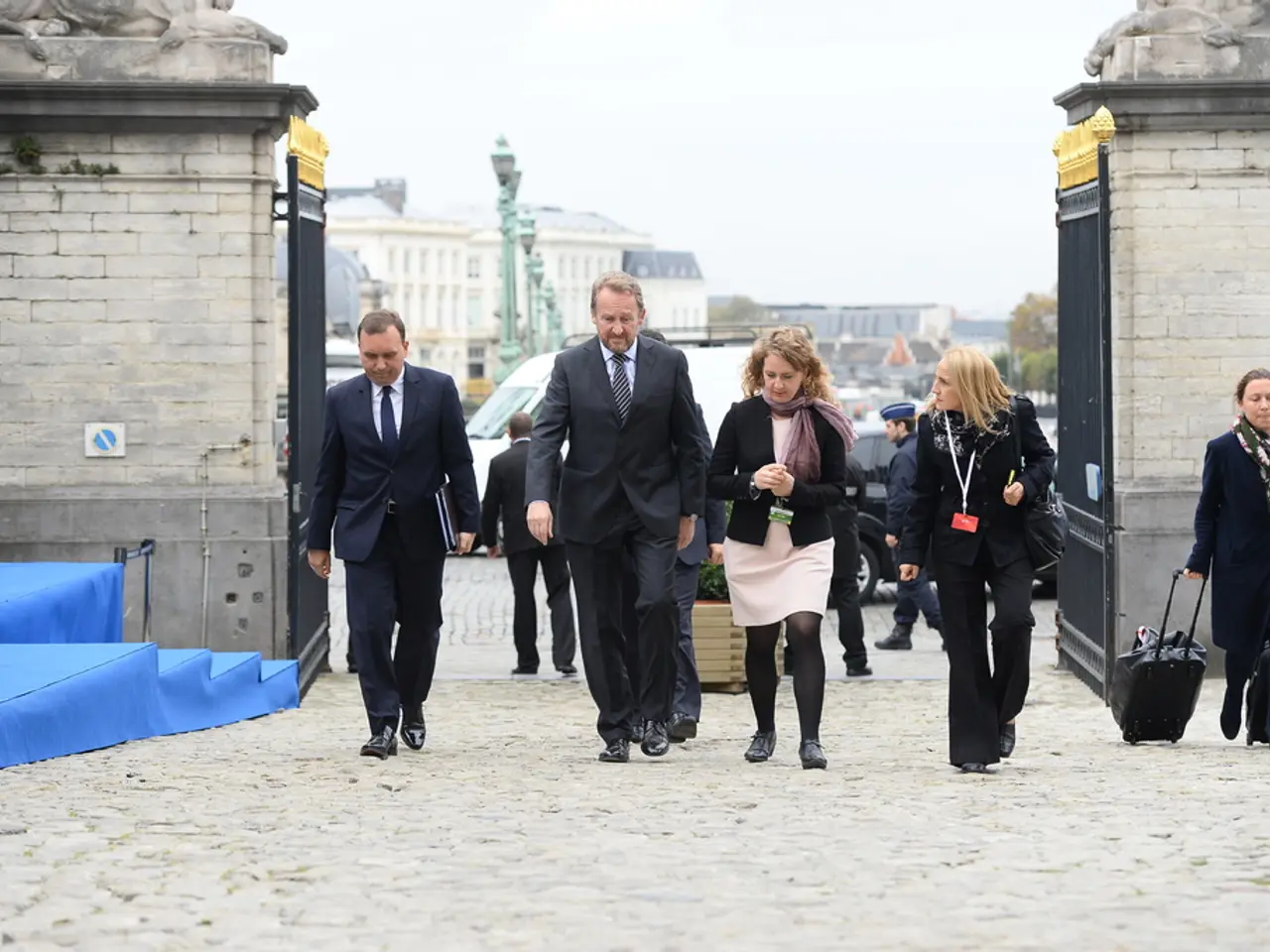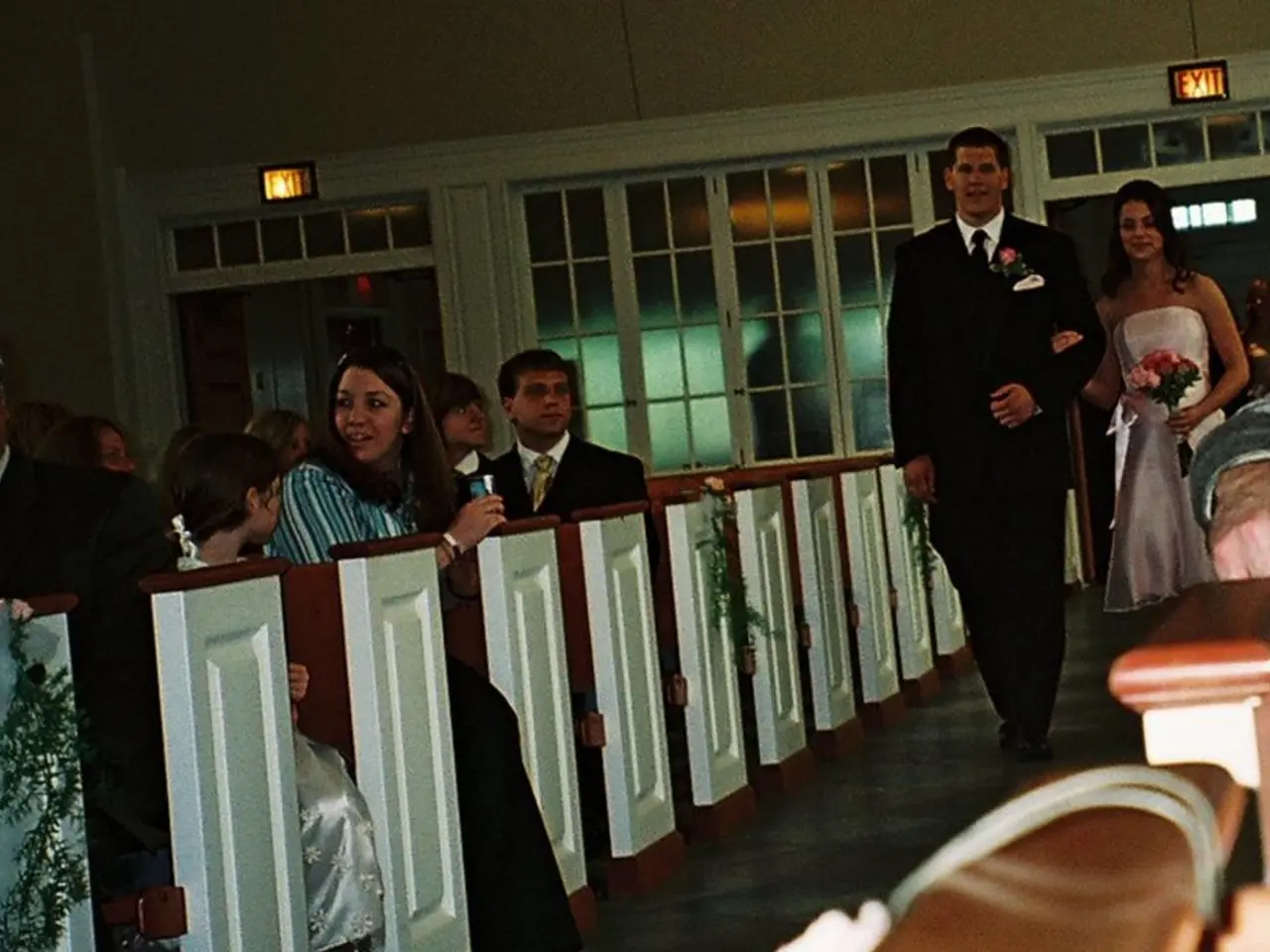"Breach of Coalition Promise" – Wüst Slams Klingbeil for Partial Electricity Tax Cut
Wust Criticizes Klingbeil for Abandoning Plans on Electrical Tax Revision
Hendrik Wüst, NRW Minister President and CDU state leader, has blasted SPD Finance Minister Lars Klingbeil for only partially implementing the announced reduction in electricity tax in his budget plan. The move leaves out crafts, trade, and private consumers, while industry is given some relief.
Wüst gatecrashed Klingbeil's election promise party by accusing him of breaking the coalition agreement, stating, "The reduction in electricity tax for everyone was agreed as a further milestone on the way to more competitiveness and relief at the location of Germany. The current approach of the Federal Finance Minister now threatens this central relief promise."
In the increasingly heated coalition negotiations, Wüst warned Klingbeil about causing a breach of the coalition agreement at this crucial juncture. Wüst denounced Klingbeil's industry-focused strategy, stating, "With his plans for the federal budgets 2025 and 2026, he not only disappoints crafts, trade, and our entire service industry, but also millions of families in Germany."
Economist Veronika Grimm weighed in, emphasizing the need to abolish the electricity tax entirely: "The electricity tax should - as agreed in the coalition agreement - be abolished in general. This would relieve companies and citizens, make electrification more attractive, and also mean a reduction in bureaucracy." She also advocated for taxing CO2 emissions instead, as recommended for climate neutrality transformation.
The German Social Association (SoVD), too, criticized the selective approach and breaking coalition promises: "The decision to make energy cheaper only for companies and not for consumers is the absolutely wrong signal," said SoVD board chair Michaela Engelmeier. "Given the constantly increasing prices for food, rents, and energy, many people have hardly anything left at the end of the month. Here, a reduction in electricity tax could have cushioned a lot," she added.
The current electricity tax situation is causing friction within the coalition government. While Klingbeil justifies the narrower scope by highlighting budgetary constraints and the need for energy transformation, critics argue that the coalition's comprehensive relief promise is unmet. The partial implementation of the electricity tax cut has sparked substantial criticism from the conservative Union and other affected parties, threatening to erode trust in the coalition's credibility.
Black-Red CoalitionCoalition NegotiationsElectricity PriceTax CutsBudget PolicyHendrik WüstLars Klingbeil
- Hendrik Wüst, the CDU state leader and Minister President of North Rhine-Westphalia, criticized Lars Klingbeil, the SPD Finance Minister, for breaching the coalition agreement by only partially implementing the promised reductions in electricity tax, which primarily benefits industry while excluding crafts, trade, and private consumers, arguing that this approach threatens the central relief promise for the competitiveness and relief of Germany's economic location.
- In the ongoing coalition negotiations, the policy of selectively reducing electricity taxes has sparked debate among parties, with critics claiming a breach of the comprehensive relief promise made during coalition negotiations and arguing for the complete abolition of electricity taxes to benefit both companies and citizens, reduce bureaucracy, and aid the electrification process.





